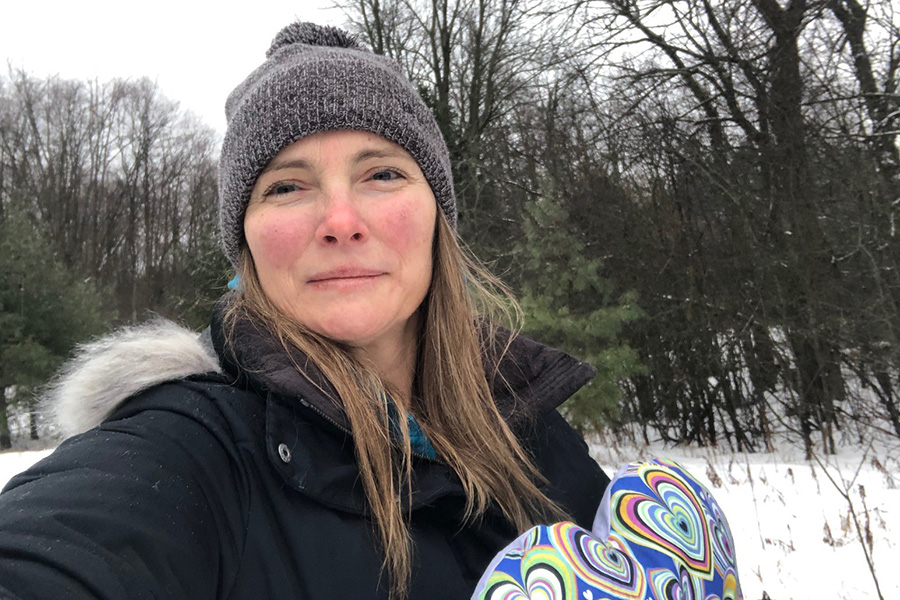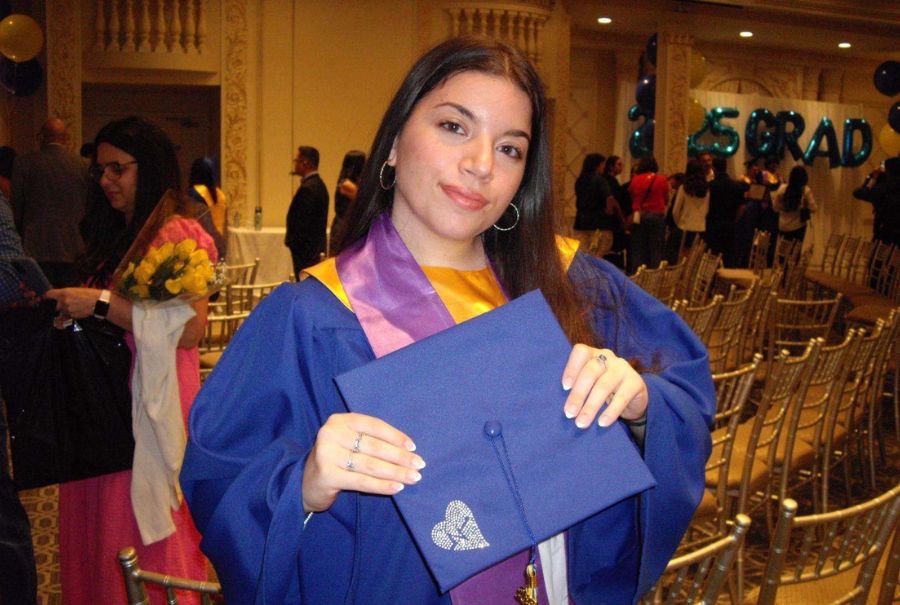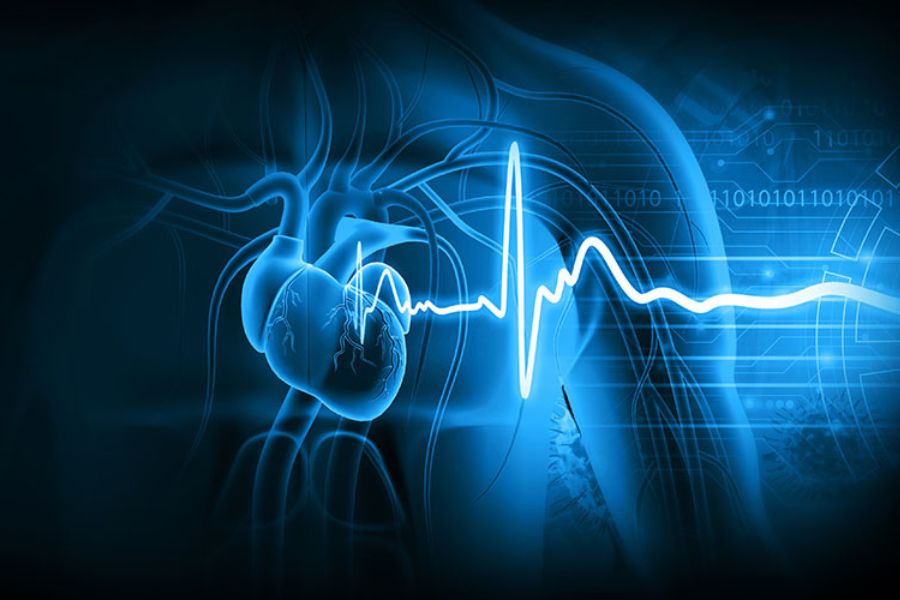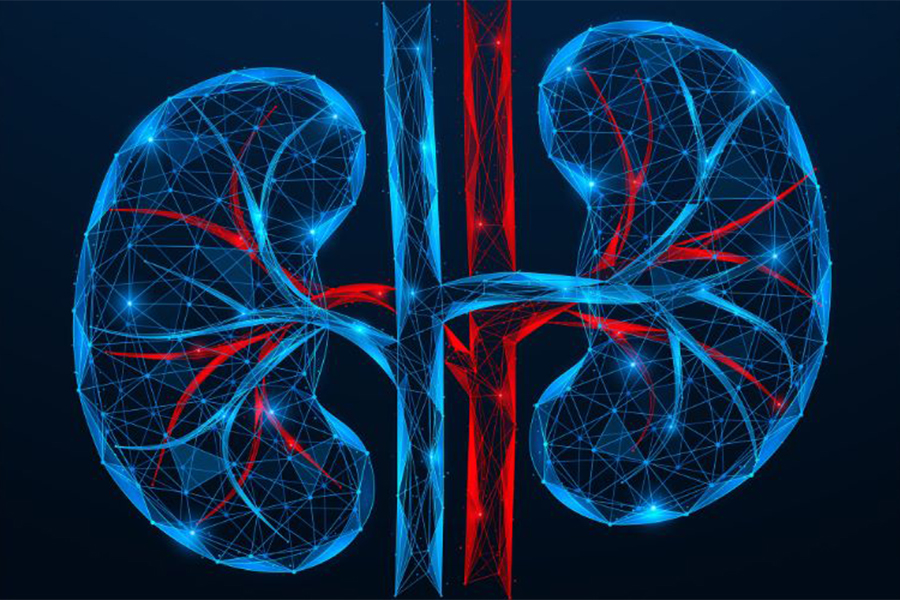
Karen Fagg knows a thing or two about mending a broken heart.
Born with congenitally corrected transposition of the great arteries (ccTGA) – a rare heart defect where both pumping chambers (ventricles) of the heart are reversed – Karen had her first procedure at six months and underwent open-heart surgery as a seven-year-old.
Under one per cent of babies born with congenital heart disease are born with this complex malformation. Despite her disease, Karen would not require another intervention until her mid-30s.
“Growing up, for the most part, I would completely forget I had ccTGA,” she says.
“I didn’t let it stop me. There was no need to.”
Karen was a competitive figure skater, got married and had two children – all without her heart giving her any trouble.
‘It was the right time – even if times were tough’
It wasn’t until 2015, during a difficult separation from her husband, that Karen started experiencing discomfort.
“My legs were swelling,” she remembers. “I was exhausted. I couldn’t keep my eyes open.
“It was like I was in a fog.”
Karen was prescribed medication to manage her symptoms and referred to the Toronto Adult Congenital Heart Disease (ACHD) Program at UHN’s Peter Munk Cardiac Centre. There, doctors discovered an acute leakage of her tricuspid valve.
“I was a bit of an oddity because the leakage was so severe but I was functioning well thanks to the medication,” she says. “I even performed well on the stress test.”
Karen opted for the elective surgical treatment to repair the leak. Her cardiologist had suggested she wait until after her separation, but Karen decided to push forward.
“I had the love and support of my amazing family and an incredible network of friends,” she says. “It was the right time – even if times were tough.”
Embracing the unpredictable
In 2020, Karen’s father was diagnosed with stage four cancer. It was estimated he had just five months.
“We took those five months and just embraced them,” she says. “Dad was a trapper and a hunter. He helped my boys get licensed. It was important to him, to all of them, to carry on his legacy and his love of nature.”
In the wake of her father’s death, Karen realized her health had been on the decline. When she returned to the ACHD Program, she was in stage three heart block and in urgent need of a pacemaker, and implantable cardioverter-defibrillator (ICD).
Those interventions would tide her over until 2023 when she began experiencing intermittent swelling and shortness of breath.
“Some days I could take the stairs no problem,” she says. “Other days I needed a break after each step.”
Dr. Rafael Alonso, Director of the ACHD Program, consulted with the Mayo Clinic on Karen’s unusual, inconsistent symptoms. Ultimately, it was decided to remove the band on the pulmonary artery and replace the tricuspid valve – sending Karen to the operating room for the fourth time in her life.
“Every time they open me up, it gets a little harder mentally,” Karen says. “But I always try to remember not to worry over what I can’t control – whether that’s my heart or the actions of others.
“In many ways, although extremely painful for our whole family, ccTGA helped me shape my perspective around the separation, my personal life, and, most importantly, my children’s future.
“It gave me the courage to make the most of what I have and to be the best provider for my children that I can be.”
Learning from congenital heart disease
For Heart Month, which is February, Karen is taking her time to ensure a full recovery from her surgery in November 2023, including cardiac rehab. As a suspension expulsion teacher, Karen can’t safely carry out the physical requirements of her job until she is fully healed.
“I love my job,” Karen says. “I love helping kids create new patterns of behaviour and get back on their feet.
“Many of the students I work with are emotionally hurt in some capacity. I run my classroom from my heart, with the intent to help heal.”
While Karen is optimistic about the future, she knows the reality of living with ACHD means her 30-year journey with the Peter Munk Cardiac Centre will likely continue.
“ccTGA has taught me a lot about myself,” she says. “I use it as a tool to help me stay positive while navigating through life’s twists and turns. It’s helped me realize what’s out of my control.
“I put my trust in Dr. Alonso – all the care providers at UHN – they give me the strength to keep going.”

No one ever changed the world on their own but when the bright minds at UHN work together with donors we can redefine the world of health care together.


